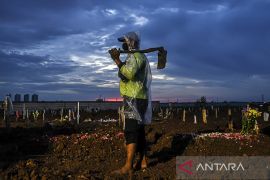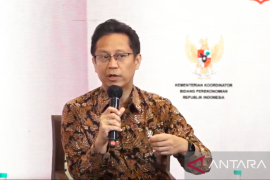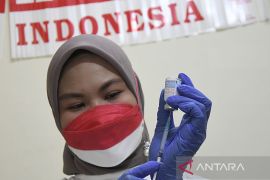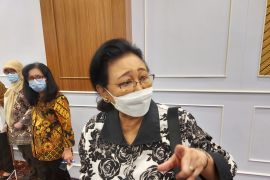The survey showed that the COVID-19 pandemic had made women more economically vulnerable and had worsened gender inequality in addition to putting the achievement of Sustainable Development Goals at stake for women and girls in Indonesia, the Ministry of Women Empowerment and Child Protection noted in a statement, quoting the survey here on Saturday.
Minister for Women’s Empowerment and Child Protection I Gusti Ayu Bintang Darmawati Puspayoga remarked that the survey had offered valuable inputs for the government to formulate a policy and implement it on target.
"One way to ensure that our efforts can help us reach the target is by considering all evaluation, data, and research that can represent the current condition," she stated.
Puspayoga also emphasized the need to build synergy between the government and various entities, including businesses, civil institution, and mass media, to chalk out the best policy, program, and services for women and children.
The result of the survey published in the report of "Assessing the impact on gender and the achievement of the SDGs in Indonesia" showed that women, who principally depend on income from family businesses, had witnessed substantial cuts, with 82 percent of them having recorded drops in this income source, while 80 percent of men too faced similar cuts.
Furthermore, during the pandemic, 36 percent of women in informal employment decreased their paid work time, as compared to 30 percent of men in informal employment.
The social distancing imposed during the pandemic has made 69 percent of women and 61 percent of men spend more time for domestic work. However, women had to bear a heavier workload, as 61 percent of them were required to spend more time on their children, while 48 percent of men spend more time on this unpaid care work.
The COVID-19 pandemic has also disproportionately affected women's mental and emotional health.
Some 57 percent of women noted spikes in their stress and anxiety levels, as compared to 48 percent of men, according to the survey.
More women are dealing with ill family members and caring for them is addition to their already expanding care and domestic workload. Those factors, coupled with anxiety over job and income loss and the effects of the lockdown on gender-based violence, may be contributing to the disproportionate worsening of mental health among women. Related news: COVID-19: 20 pregnant women test positive in East Java's Gresik
Related news: Women of West Kalimantan's peatland villages produce 10,000 masks
Related news: Minister calls women as Indonesia's strength in fight against COVID-19
EDITED BY INE
Translator: Dewanto S, Sri Haryati
Editor: Suharto
Copyright © ANTARA 2020












